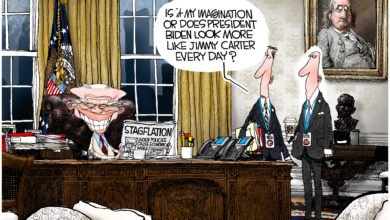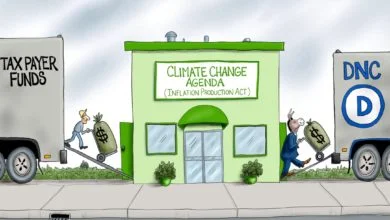Only free trade is truly fair
The current dichotomy which is being promoted between “fair trade” and “free trade” is utterly nonsensical.
Free trade is the only type of fair trade. Free trade empowers the actors considering entering into a business relationship to set their own standards of what constitutes “fairness.” If all parties can come to a consensus where their individual ideas of what is “fair” to them are met, then they move forward with their relationship; elsewise, they abandon it and seek more favorable terms.
What has become known as “fair trade” is anything but. The standard of “fairness” is attached to some codified political document that sets legal parameters for trade. These must be complied with at threat of force; there is no freedom for alternative ideas of fairness to compete. In truly free trade, actors who feel the changing economic situations make an arrangement no longer fair can simply cease their relationship and seek out a better deal. In so-called “fair trade”, threat of force is coupled with noncompliance.
Actors who want to enter such an arrangement are not free to negotiate based on their own idea of fairness; they must comply with the standard set by the legal and political processes. There is nothing “free” or “fair” in such a process.
Free trade recognizes all interactions are driven by unique individualistic systems of value-judgments. Individual existence is the sum of thought patterns, emotional trends and experiences resonating. All or any of these can endear a person to a product or service. Uniqueness makes it impossible to measure the discretionary power of market interactions. This means creators need to find a way to connect with people on an individual level. As a result, genuineness and originality are emphasized.
When entrepreneurs present goods or services that either misunderstand individual sentiment or intentionally attempt to manipulate it, they risk alienating their customer base. Thus, there is exigency in maintaining authentic business practices and producing truly meritorious goods. Again, the driving force behind this is the individual whose purchasing power provides impetus for market innovations.
But, in the producer-consumer relationship viewed through an individualist lens, it is not just the consumer who benefits. Dearness is organically promoted from the bottom-up. A message must resonate first with a person, then with a group and finally with a plurality or majority. The truly original and meritorious creators whose product is based in principles must also be promoted.
This kind of power driving currency is important, especially in context of government-endorsed measures like quantitative easing, which are designed to artificially inflate the market. This process, which has become necessary in order for the economy to remain viable and competitive globally, also inflates currency. Since fiat money’s value is based off a relative scale anyway, this drives up the price of goods, which diminishes the purchasing power of consumers and reduces the influence they can have on markets.
And herein lies another reason the discretionary power of money is crucial: it loosens the grip of established gatekeepers. Though free markets do have a functioning macro level, their foundation is at the level of individuals and small business interacting. When sight of this is lost, and markets are viewed as nothing other than another policy tool in the game of global politics, individual citizens, consumers and business owners become the slaves. The system is literally built off the products of their labor, yet they are given no influence over it and, since in this system agencies of overarching infrastructure, like the Federal Reserve, control its functions, they are forever doomed to this role.
Trade, therefore, has to be rooted in individual discretion to evaluate the merit of a good or service and determine whether the purchase price is worth the cost. Only individuals can make determinations about whether a valuation for a good is “fair” because their analytical process for doing so is rooted in their conscience. When politicians talk of fair trade as being integral to free trade they are asserting their scale of valuation above that of other consumers. This kind of protectionism only subverts volitional trade and insulates poor producers from the repercussions of their bad trade practices. It does nothing towards actually making market interactions fair.




